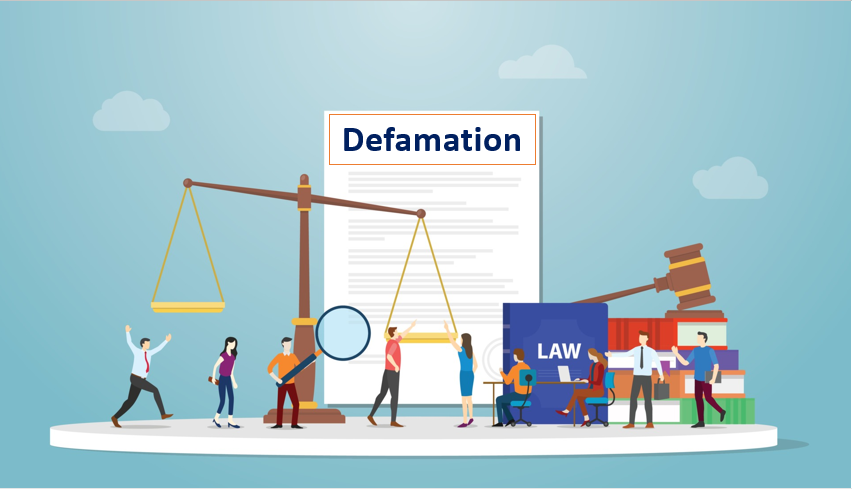Published on 14th April 2025
Authored By: Manami Roy
George School of Law (Burdwan University)
ABSTRACT
Plastic waste has become a significant environmental crisis, having adverse effect to human health, wildlife and global climate. The journey of plastic throughout the time has been quiet impressive but lack of management, awareness has turned plastic into a threat not only to the human kind but wildlife and the whole environment as well. For the last few decades the demand of plastic has increased but plastic waste has started to create its detrimental effect on the nature like soil and water contamination, health issues of humans and animals, climate change, global warming. Strong administration for plastic waste management and punishment for violating the environment by contributing in plastic pollution, should be established by nations. It is disheartening to know that India is one of the leading country that’s struggling with plastic pollution. Though there are rules created by Indian government regarding plastic waste management, at the same time public awareness would help to improve the struggling condition of our country as well as other nations of the world.
KEY WORDS: Plastic waste, Waste Management, Solid waste, Solid Waste Management, Recycling, Reusing, Global warming, Climate change, Plastic waste management programs, Laws on waste disposal.
INTRODUCTION
Years ago the idea to create something durable and cost effective surfaced in order to protect the natural resources. Natural resources like tortoise shell, ivory and rubber were being used in large amount for the production of day to day commodities. Deforestation was another reason behind the introduction of plastic in the society. Natural resources are also nonrenewable, that’s why unbridled usage of the natural resources were becoming a great threat to the nature.
JOURNEY OF PLASTIC OVER THE TIME
In 1868, being inspired by a New Work farms offer of $10,000 for anyone who could provide a substitute for ivory, John Wesley Hyatt invented the first synthetic polymer in the world.
Later in 1907, Bakelite, the first fully synthetic plastic in the world, containing no molecules found in the nature, was invented by Leo Baekeland. Baekeland invented this as a substitute to shellac a natural electric insulator.
As the time went on the demand of plastic increased in a drastic way. In present time plastic is used in every field for the production of various things, from plastic bags, bottles to medical equipment. Plastic has become the cheaper substitution for many natural resources.
HOW PLASTIC IS A THREAT TO ENVIRONMENT
Though the greater cause behind the introduction was the protection of environment, eventually it became one of the biggest threat to the environment. Being hard to destroy, plastic stays in the nature for a long time.
Plastic’s presence in nature effects the wildlife, human life and the climate as well. Plastic releases greenhouse gases and other harmful chemical which has adverse effect in the world. Also every year a large amount of plastic wastes are disposed in the rivers and oceans. These plastic wastes also effects the aquatic ecosystem and the water habitats.
Plastic is also a threat to the wildlife and forests. Deforestation has become another detrimental effect of plastic use by collecting materials for plastic from the nature to dumping plastic wastes and cutting down hundreds of trees to establish plastic factories or disposable site. Harmful chemical discharged by plastic contaminates water and soil which leads to serious health problem in both human and animals.
Micro plastic pollution is another adverse outcome of plastic pollution. Micro plastic means small particles of plastic mostly smaller than 5 millimeter in size. Lack of awareness or ignorance causes micro plastic pollution by cutting bigger plastic into smaller pieces without knowing the consequences. Micro plastics are mainly generated from daily chores (like using plastic bottles, cup, cutlery, nonstick cookware, plastic food container, cosmetics, cosmetics packets etc.).
Lack of awareness, lack of civic sense and the huge amount of ignorance of the people in society work has the catalyst in plastic pollution. Many people in the society are least bothered about the pollution they create by using plastics however r they want without considering the consequences of their deeds. Everyday a large amount of plastic is being dumped in oceans rivers forests and many other inappropriate places which lead to soil contamination, climate change and global warming. Though there loss regarding plastic waste management people in the society are not cooperative as much as needed for the betterment of the environment.
HOW INDIA IS DEALING WITH PLASTIS WASTE MANAGEMENT
Plastic pollution is a threat not only to India but to the world at large. Plastic pollution is something that concerns the global environment. That’s why plastic waste management programs are being conducted all over the world. Various nations of the world are trying in their own way to deal with the tons of plastic waste being generated every year. The demand of plastic has increased because it’s cheap and versatile, can be used in many way. Non-biodegradability is one of the main characteristics of plastic as well as its biggest drawback which helps plastic to stay in the environment for a long time which leads to pollution. That’s why a proper management of plastic waste is something the world’s environment demands right now.
As plastics are mostly hard to destroy the eminent step that can be taken to reduce the amount of plastic waste, is recycling and reuse. Many nations use the methods of recycling and reusing to reduce plastic waste. Long lasting furniture, fashionable bags, textiles are some recycled product created from plastic waste. Plastic waste can also be reduced by reusing them in households, crafts, industries or and eco-bricks. But it’s disappointing to know that economically developing countries are struggling with solid waste management. The amount of waste production and waste reduction are absolutely disproportional. Developing countries like India are generating more plastic waste than the amount of plastic waste are being managed.
- Plastic waste management programs in India: Though India holds one of the leading positions in creating plastic waste, its performance is not impressive in case of waste management. Peoples’ lack of sincerity as well as government’s nonchalance are crippling India’s performance in the field of plastic waste management.
Studies show that India is the largest producer of plastic waste (20% of the world’s total plastic waste) in the world. According to reports India generates around 15 million tons of plastic every year but only 1/4th of the wastes are being disposed properly.
Swachh Bharat Mission is one of the most recent approach of government for waste management. Another noticeable name is Saahas Zeero Waste a remarkable approach of an India based NGO Sahaas focuses on solid waste management and promotes recycled products. Some other approaches are there as well, such as Stree Mukti Sangathana an organization related to the women waste collectors in Mumbai. In Madhya Pradesh, Bhopal Municipal Corporation has created a GPS-enabled vehicle to which will collect door to door wastes. Apart from government programs, many self-motivated individuals in India have taken it upon themselves to build teams and collect plastic waste and disposing or recycling them accordingly to avoid soil and water contamination.
LAWS ON PLASTIC WASTE MANAGEMENT IN INDIA
Over the last few decades with the growing concern about plastic pollution, the government of India has been creating rules and regulations to regulate plastic waste management. This rule and regulations are concerned about proper disposal of plastic, regulation of plastic production and selling, recycling and reusing the plastics. However the rules and regulations have been evaluated with the demand of time. In 1998 the first plastic management rule was introduced by the government of India which was the ‘Recycled Plastics Usage Rules 1998’. Then The ‘Plastics Manufacture, Sale and Usage Rules 1999’ was introduced in the year 1999. After that came the ‘Recycled Plastics Manufacture and Usage (Amendments) Rules, 2003. Then came the ‘Draft Plastics Manufacture and Usage (Amendments) Rules 2009. Subsequently ‘Plastics Waste Management Rules 2016’ , ‘Plastics West Management (Amendments) Rules 2018, ‘Plastic West Management (Amendments) Rules 2021, ‘Plastics Waste Management (Second Amendments) Rules 2021, ‘Plastic Waste Management (Amendments) Rules 2022’ and ‘Plastics Waste Management (Amendments) Rules 2024 was introduced.
- Key features of these rules: All the rules introduced by the government of India mainly focus on the proper disposal, recycling and reuse of the plastic wastes. The rules introduced in the initial stage were mostly concerned about the usage of plastics but the area of concern of the rules introduced in the subsequent time have expanded a lot. The key features of the rules are –
- Mandatory Segregation: Segregation means setting something apart. Mandatory Segregation rule refers to the sorting of different type of wastes at the very source (from homes, factories etc.).
- Ban on Single Use Plastic: Another provision of these rules is Ban on Single Use Plastic. Single Use Plastic creates more hazardous as they are a widely accepted product (because they are cheap and hygiene related issues) but gets dumped here and there after single use.
- Extended Producers Responsibility: Where the products must carry logo and manufacturing details and the producers are held liable for any kind of mismanagement or for generating plastic waste.
- Recycle: These rules also regulates and promotes the production of recycled plastic products. Monetizing and marketing the recycled plastic products are also a part of these rules.
- Reuse: Plastic Waste Management rules encourages reuses of plastic as well. Plastic can be reuses in various way like in the households, for DIY crafts, packaging etc.
CONCLUSION
Plastic pollution is global issue which is a threat to human life, wildlife, climate of the world. In this situation plastic waste management has become one of the most significant issue which needs immediate attention and reaction. All the nations individually as well as cooperatively should work against this widespread environmental crisis. There should be more public awareness programs and more strict rules against plastic waste pollution. It is the duty of us to create a pollution free and sustainable future for the upcoming generations.
REFERENCES
- Plastics For Change
- World Economic Forum
- Department of Environment, Government of NCT of Delhi
- Central Pollution Control Board
- Recycling Hope: The Programme Changing Lives and Fighting Plastic Pollution in India. December 31, 2024. UNDP India.


